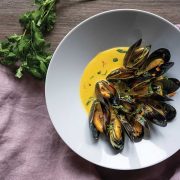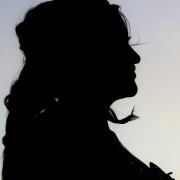
To stay or to go? That is the wintertime travel question in this COVID year. With health concerns, job precarity, and financial strains, many of us are wondering how to take a break from it all. Should we or <could> we travel this year? And if so, <where>?
After this intense, oftentimes surreal year, it’s no wonder many of us are longing to get away from the reality of it all. Linda Graham, MFT, author of <Bouncing Back> and <Resilience> (New World Library, 2013 and 2018), says we all need to experience the refuge and restoration of a break or pause.
And Marika Chandler, Ontario director of Outward Bound Canada, notes that “getting away” is a time of making new memories, immersing in a different kind of present than our usual day-to-day, and deepening connections with each other and the natural world.
The pleasure of planning
But it’s not just getting away that feels so good; it begins in the very planning of a trip—the delight in the hope, envisioning, and anticipation of getaways. “There is emerging research,” says Chandler, “about the mental health benefits of investing time into researching and visualizing where you’re going.”
Getting out
Cautious vacationing
How can people minimize their risk of COVID infection when deciding on an outdoor getaway? “From the beginning,” says Chandler, “spending time outdoors was identified as a lower risk activity.” But, to avoid unanticipated surprises, she recommends taking time to review the details before heading out.
The three Cs we need to avoid or minimize during COVID:
- confined spaces with poor ventilation
- close contact
- crowded spaces
Take time to consider the small but important details—before heading out—that are less easy to control:
- shared surfaces
- food prep
- disinfecting shared equipment
- sleeping arrangements
Weekend roaming
Start small and near, suggests Chandler, for weekend excursions. For Chandler, that means visiting the small lakes that dot the Muskoka landscape, relishing the rocky outcrops and rivers. Weekend getaways for Chandler mean the opportunity to savour the magic of winter: “sun bouncing off ice crystals, or moody clouds.” Wherever is near enough for you to access, Chandler encourages staying active all winter, from cross-country skiing to snow biking or skating across a frozen pond.
Winter wanders
From borrowing or renting a winter tent to booking a hut at a provincial park, there’s a wide range of ways to experience the beauty of winter for beginner and seasoned campers. “Winter camping can seem daunting for the uninitiated,” admits Chandler. Though crawling out of a warm sleeping bag into a frosty morning can be a challenge, winter expeditions are particularly rewarding and poignant, given their unique obstacles.
Some provincial parks offer winter camping workshops that cover the basics such as trip planning, equipment details, and safety.
For lengthier outdoor stays, Chandler recommends checking out yurts, including those in Algonquin Park, Arrowhead, and Limberlost Forest and Wildlife Reserve for those living in Ontario. Be sure to check with provincial parks departments to find out which areas are open for winter activities and for reservations, if needed.
Farther afield
A careful road-trip might be just the ticket to soothe that travel itch. Heading east from Toronto is Chandler’s personal favourite, passing through Montreal, Quebec City, Trois-Rivières, and Gaspé on the way to New Brunswick, where Chandler suggests checking out Grand Manan Island and the Bay of Fundy tides before carrying on to Nova Scotia.
“There are rewards small and big at every turn,” declares Chandler, such as “following the St. Lawrence to the sea, beautiful all year long.”
“Our eastern provinces have been closed to travel from other Canadians this year,” says Chandler, “and their economy benefits greatly from tourism. Supporting them if they <are> open to visitors would be a boon for locals.”
Be sure to check for any COVID travel restrictions that may be in place before you head out on the road.
“Key to getting away in 2020 is making sure you’re up to date on the status of the area you’re travelling to,” says Chandler. Assuming the destination you’re considering is open to visitors, here are a few other questions to consider:
- Is the local health care system overtaxed?
- Are you adding to any strain on the local or regional system?
- How are you impacting residents by taking your trip?
Equitable enjoyment
From the cost of gear to a lack of inclusion in the outdoor expedition realm, how can <all> Canadians enjoy winter’s natural wonders? Chandler emphasizes why access is important to her and Outward Bound: “There are many barriers to being able to pursue outdoor education and excursions.”
Priorities, for Chandler, to address this inequity have included providing access closer to home, considering shorter getaways, and offering low-cost opportunities. She’s also proud of initiatives to elevate accessibility, including the Parkbus (<parkbus.ca>) and Learn to Camp programs (<pc.gc.ca> or <ontarioparks.com/learntocamp>).
Chandler is also an advocate of greater representation and diversity in the outdoors, for both participants and those who guide, instruct, and steward.
Acknowledging place
As critically important as safety considerations are during this time of COVID-19, so too is taking time to understand and honour the history of any land you pass through or stay on.
Learn about new places
Find out who lived on and cared for the place where you’re camping or vacationing, delve into the land claim and treaty history, and explore the local history and political context of the site of your yurt, hut, campsite, or eco-resort rental.
Staying in
A treat to retreat
Times of rest and retreat are a necessary and natural part of our fundamental rhythms. The human nervous system ebbs and flows between activation to engage with the world and then de-activation to recover, rest, and renew.
Perhaps your job won’t allow time away right now, or maybe you feel uncomfortable with the thought of going far afield. Whatever the factors that make it feel safer to stay close to home, we can find the replenishment we need with a staycation.
Say “yes” to yourself
“Give yourself permission,” urges Graham, “to take some time off or time out.” A staycation is not selfish or indulgent or a needless luxury. During this time of uncertainty, it’s genuine self-care that revitalizes you so you can return to dealing with the hard stuff day after day with new energy and a new sense of meaning and purpose.
You can use the sabbatical of a staycation to learn something new. By focusing on a learning project,” Graham points out, “we can give ourselves the gift of delight as well as structure and meaning.”
Take time to savour small delights
Staycating allows us time to enjoy the small stuff, says Graham. And those small moments and micro-pleasures that often go unnoticed in the busyness of our days can play a crucial role in restoring our well-being. Take time to notice and savour; don’t let the moment simply pass by.
“When you experience moments of laughter, joy, or awe during your staycation,” Graham suggests, “take half a minute to really notice, appreciate, and savour them. When we revisit each detail, we install those experiences in our long-term memory as a resource to draw on again and again.”
A time to disconnect, connect, or reconnect
Consider creating your own tech-free silent retreat for your next staycation. Or, if you’ve had enough of isolation, Graham suggests making your holiday-at-home rich with prescheduled catch-ups; conversations; dinners; and trivia, card, and board games via video hosting.
Here, near, or far
Whether by vacay or staycay, getting away—here, near, or far—can nourish our well-being by
- providing time and space to reflect
- broadening our perspectives
- engaging different interests
- moving our bodies in different ways
- taking some much-needed respite
Check out our web-exclusive for more information!






